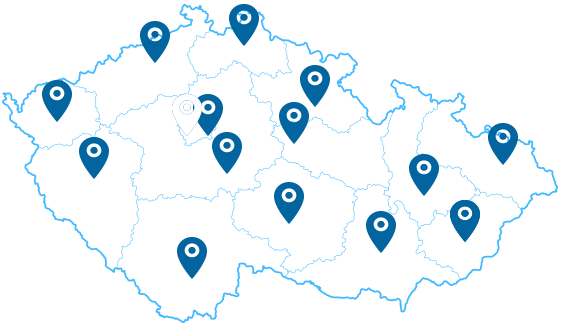I.
Pursuant to Regulation (EU) of the European Parliament and of the Council No 576/2013 on the non-commercial movement of pet animals and repealing Regulation (EC) No 998/2003, the following conditions apply as standard to the entry of dogs, cats and ferrets from the Russian Federation to the territory of the EU
- identification/marking of the animal using a microchip (i.e. by the implantation of a transponder) or by a tattoo, provided that it has been applied before 2 July 2011,
- valid vaccination against rabies (the animal must have been identified/marked using a microchip or a tattoo prior to the vaccination against rabies),
- harmonised veterinary certificate for the entry to the EU attested by an official veterinarian.
Serological testing for rabies is not required.
II.
The State Veterinary Administration of the Czech Republic sets for the entry of pet dogs, cats and ferrets accompanying EU citizens returning due to an emergency situation in Ukraine to the territory of the Czech Republic from the Russian Federation, and not meeting the above mentioned conditions of the current legislation the following requirements:
For the purpose of the protection of the territory of the Czech Republic against intrusion of rabies (the Czech Republic has been free from rabies since the year 2004), the owners/other persons shall
- Ensure that dogs, cats and ferrets are after their entry to the territory of the Czech republic placed in a quarantine for 10 days (the quarantine shall mean that the animal is under a permanent control of the owner/other person) at the place of residence,
- Ensure that within 72 hours from the day of entry to the territory of the Czech Republic, a clinical examination of an animal is performed by a private veterinarian in order to detect whether the animal shows clinical signs of rabies. If the animal is not identified, the private veterinarian shall perform the identification/marking using a microchip, shall record data/details of the animal (i.e. at least the description and the microchip No) and shall issue a document on performed examination,
- Ensure that a repeated clinical examination of the animal is performed by a private veterinarian between sixth and tenth day of the quarantine. When the animal does not show any clinical signs of rabies, the vaccination of the animal against rabies shall be performed and a vaccination passport or pet passport shall be issued,
- Submit, through a private veterinarian, to the territorially competent Regional Veterinary Administration of the State Veterinary Administration a completed form containing information on the animal (see Annex).
In the event that an animal injures a human, dies or develops a disease with nervous symptoms during the quarantine period, the owner/other person shall without delay arrange for an examination of the animal by a private veterinarian.
Annexes – Veterinary conditions and Forms:
Veterinary conditions for the entry of pet animals of EU citizens returning due to an emergency situation in Ukraine from the Russian Federation to the Czech Republic (44.3 KB)
(44.3 KB) Form containing information on a pet animal accompanying an EU citizen at the return from the Russian Federation due to an emergency situation in Ukraine
 (103.4 KB)
(103.4 KB) 

